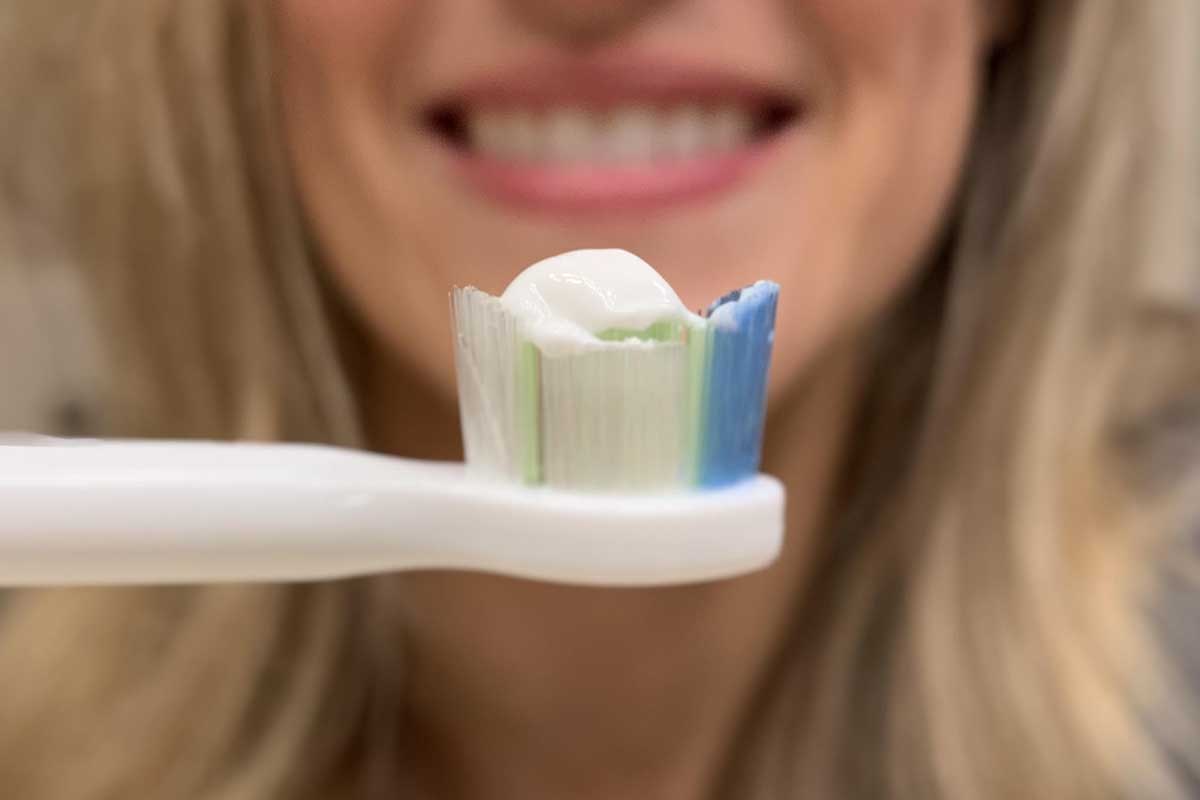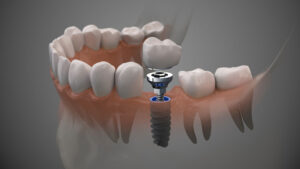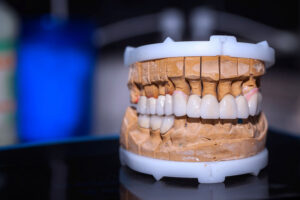How to Establish the Best Adult Oral Hygiene Daily Routine
When is the last time you critiqued your oral hygiene routine?
Are you sure you’re doing what is necessary to maintain your oral health? The COVID-19 pandemic serves as a reminder to us all how important it is to practice proper preventative measures to stay safe and healthy. We’ve heard time and again about good handwashing, but what your mouth and teeth?
How does an adult create a proper oral hygiene routine?
7 Steps for Adults to Establish a Great Oral Hygiene Routine
1. Set and stick to a solid tooth brushing routine
2. Regard flossing your teeth as important as brushing
3. Use a fluoride toothpaste
4. Use a good mouth rinse
5. Drink lots of water and only water just before bed
6. Establish a healthy and consistent diet
7. Schedule routine dental check-ups and cleanings
1. Set and Stick to a Solid Tooth Brushing Routine
Brushing your teeth is the single most effective measure you can take to maintain your oral health. Toothbrushing aids in mechanically removing food debris and acidic plaque from your teeth. Left untouched, plaque causes enamel to demineralize, which can eventually lead to a cavity. Additionally, thorough toothbrushing helps prevent gum disease and bad breath.
As adults, we’ve already formed daily routines that shape our oral hygiene. As we age, our adult teeth benefit from anti-aging dentistry. This may include tweaking and improving our brushing techniques.
What is the best tooth brushing technique for adults?
- Angle your brush head towards the gumline.
- Aim for about a 45-degree angle.
- Move from tooth to tooth making small circles with light pressure.
- While it’s often recommended to brush your teeth for two minutes, this should be viewed as a minimum.
- It is important to brush your tongue also as it’s textured surface can harbor bacteria and contribute to bad breath.
- For optimal oral health, make sure to brush your teeth before bed and ideally a second time during the day.
How do I Choose the Best Adult Toothbrush?
When it comes to choosing a toothbrush, many options exist. Electronic toothbrushes can be especially beneficial for improved plaque removal and stimulation of the gum tissues. In addition, most electronic toothbrushes have a two-minute timer to help ensure you brush long enough. A traditional manual toothbrush can be effective as well when used properly. Regardless, make sure that the brush head is soft.
In our present climate of great health concern, we’d like to emphasize the importance of having your own toothbrush. Do not share your toothbrush with anyone in order to prevent the transfer of germs.
2. Regard Flossing your Teeth as Important as Brushing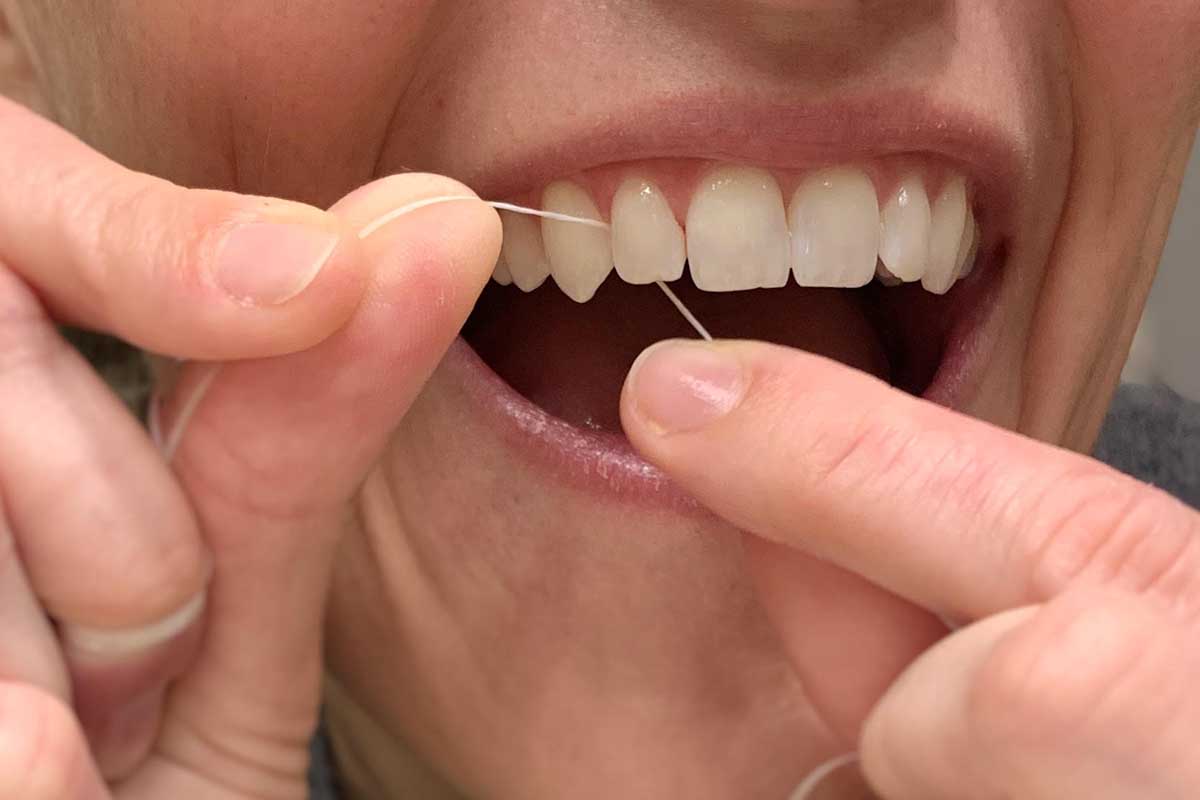
Unless space is present between your teeth, brushing well reaches about 60-75% of the tooth surfaces that need to be cleaned. It is important to floss once a day to adequately clean the surfaces not reached with your toothbrush. This will aid in the maintenance of your gum health, fresher breath, and will help prevent cavities from developing between your teeth.
Using about 18 inches of floss, wrap an end around each of your middle fingers leaving about 2 inches between. Using your thumbs and forefingers, guide the floss between your teeth creating a C-shape with the floss against each tooth. Gently move the floss up and down to clear food debris and plaque. Use a new piece each time you floss.
While traditional floss used correctly will do the best job, there are many alternative gadgets available for cleaning between your teeth. A water flosser flushes out plaque, food debris, and bacteria by way of a small water jet. Especially if you have dental bridges or fixed orthodontic appliances vs Invisalign aligners, a water flosser may be beneficial in reducing gum inflammation and be easier to use than traditional floss. You can find floss threaders, toothpicks, micro-brushes, and many other options if you are having a hard time. For especially tough spaces, your dental hygienist may be able to recommend a specific adjunct to help.
Proper and consistent flossing helps to prevent dental infections.
3. Use a Fluoride Toothpaste
What ingredients should I look for in toothpaste?
If you’ve ever felt overwhelmed by all the choices in the toothpaste aisle, you’re not alone. The most important trait to look for in toothpaste is fluoride as an active ingredient for cavity prevention. If you have issues with sensitivity or have significant gum recession, finding a toothpaste with a low relative dentin abrasion (RDA) value may be helpful as well. In general, most toothpastes with a ‘sensitive’ label have a lower RDA, while many toothpastes with ‘whitening’ or ‘tarter control’ tend to have a higher RDA.
If you develop a lot of stain quickly despite regular brushing, the higher RDA could be beneficial, but be on the lookout for new sensitivity as added gritty ingredients that are super for stain removal can be hard on your teeth. Ask your dentist all your questions for specific recommendations. Help extend the life of your tube by only using a pea-sized amount each time you brush. If you have a dry mouth or have had recent cavities, a prescription-strength fluoride toothpaste may be recommended for added protection against cavities.
4. Use a Good Mouth Rinse
Just as is the case with toothpaste, there are numerous options for mouth rinse. If you choose to use a rinse, the best one will depend upon your needs. While some rinses are only intended to freshen your breath, others are designed to have an antimicrobial effect to help with gum health, and still others are formulated for cavity prevention. There are also rinses and sprays which can be specifically beneficial if you have a dry mouth. Be sure that you read labels closely to find the rinse right for you.
5. Drink lots of Water and Only Water just Before Bed
In the evening, do not eat or drink anything other than water after brushing. The amount of saliva we produce decreases during sleep. This leaves our teeth more vulnerable as saliva helps buffer the acid created by cavity-causing bacteria. Especially if you’ve had cavities, it may be beneficial to spit out any excess toothpaste after brushing but bypass rinsing with water. This will leave a safe amount of fluoride in your saliva to aid in remineralization of your enamel.
6. Establish a Healthy and Consistent Diet
How do the dietary decision I make impact oral hygiene?
While your oral hygiene routine will directly benefit your oral health, so do the dietary decisions that you make each day. A diet low in refined sugars and high in fruits and vegetables can benefit your overall health as well as your dental health. If you feel you have a good oral hygiene routine but continue to get cavities, consider what things you consume.
The consistency of the things you eat makes a difference. Foods that are sticky, or carbohydrates like crackers and breads, tend to foster plaque development and stick around your mouth a relatively long time in the grooves of your teeth. Fibrous or crunchy fruits and vegetables like carrots, apples, or nuts are a better choice, especially between meals. Cheese is another excellent snack that has been shown to be beneficial to your teeth.
The frequency that you consume sugar-containing food and drinks matters too. Studies have shown that from an oral health standpoint, the quantity of sugary or acidic food/drink consumed matters less than the frequency that it enters your mouth. As an example, chugging an entire two-liter of soda would be less harmful to your teeth than sipping a small can over the course of a few hours. As the saying goes, “Sip all day, get decay.”
At Smile Design Dentistry, we tell patients that they do not need to eliminate the things they like, but instead be mindful of how they consume them. Try to finish your coffee (cream or sugar anyone?) within an hour or alongside a meal, then switch to water for the rest of the day. Your teeth will thank you.
Does Sugar-free gum help prevent cavities?
Sugar-free gum, especially those containing Xylitol as the number one ingredient, can be helpful for cavity prevention as well. If you have a history of TMJ symptoms like teeth grinding, consider sticking to sugar-free mints instead. Both will have the benefit of stimulating saliva production which can help to clear sugars and cleanse your teeth after a snack or meal.
Do not use any tobacco products (per the CDC) and limit alcoholic drinks.
7. Schedule Routine Dental Check-ups and Cleanings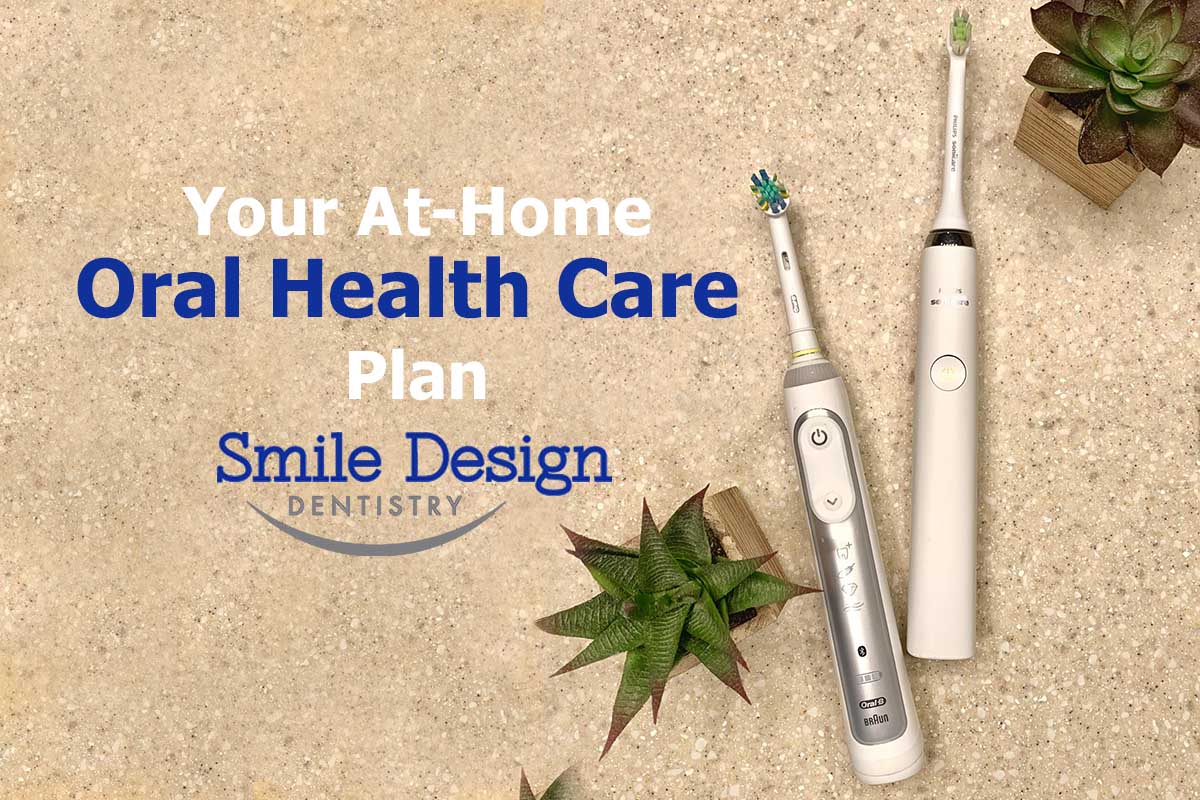
A good oral hygiene routine can help you maintain optimal oral health in conjunction with regular dental visits. Between your routine visits, inspect your mouth occasionally for changes in color, texture, or shape of your teeth and gum tissues. If you are uncertain if something is normal, a general rule of thumb is to look for symmetry on the opposite side of your mouth. If both sides look identical, it is most likely normal.
If not, or if you are uncertain, please contact Smile Design Dentistry for an evaluation. In many cases, and particularly front of mind as we deal with COVID-19, even a simple photo taken on your electronic device may provide adequate information for a Telehealth assessment. If you need added help to protect your gums or we recommend fixing crooked teeth, then you know what to plan for. Prevent unnecessary worry and please reach out to us if in doubt.
We’ll answer a few more common related questions.
How Often Should I Change to a New Toothbrush?
Change your toothbrush or electric brush head every three months or sooner if it begins to fray. It is also prudent to get a new toothbrush after recovering from an illness. We continue to learn more about the modes of transmission of COVID-19, but there is evidence to show fecal transmission.
With this in mind, be thoughtful about where and how you store your toothbrush. If it is in close proximity to your toilet, ensure that the lid is closed before you flush. Additionally, make sure your brush head does not make contact with other brushes and that it can properly dry between uses to prevent bacterial growth.
How Important is Consistant Oral Hygiene When Sick?
If you are not feeling well, try your best to maintain your normal oral hygiene routine, keeping in mind that the evening brushing is the most important. Ensure that any medicinal syrups or lozenges you use are sugar-free. Finally, don’t forget to get a new toothbrush (or brush head) when you begin to feel better.
Your Teeth Need a Lifetime of Great Oral Hygiene
Studies continue to show that our oral health is linked to our overall health in many ways. Your family’s orthodontic dental needs may be more important than you think. Maintaining optimal oral health may help lower your risk for heart disease, stroke, and diabetes, amongst other conditions. Having a top-notch dentist at Smile Design Dentistry can undoubtedly help, but it cannot replace how you take care of your teeth at home.
Kwun Chuen (Gary) Chan, Professor of Health Services at Washington University talks about retaining teeth has the most to do with care over a lifetime. “Loss of permanent teeth from caries or periodontal disease was associated with 1.25 times greater odds of worse self‐rated general health”, according to the Wiley September 2013 publication. In the Poor Oral Health and Quality of Life in Older U.S. Adults library article, he also says that a “lack of dental care in the preceding 12 months was associated with 1.34 times greater odds of worse self‐rated general health” than individuals receiving dental care in the preceding 12 months.
This underscores why it is critical to establish the best adult oral hygiene routine for your daily at-home oral health management. Then create a long-term relationship with your dentist of choice for comprehensive dental care over a life time.
“One of the things I enjoy most about being a dentist is chatting with my patients and hearing about their triumphs, trials, and travels. These opportunities most often arise on return visits for treatment when we have a longer amount of time to visit than at a routine check-up.” -Dr. Bertrand
SUMMARY
The team at Smile Design Dentistry sincerely wants you to keep your mouth healthy. By adhering to the adult oral hygiene guidelines above, you can enjoy only visiting us when you need to!
Call us today for your next appointment. 763-537-1238
 Dr. Jennifer Bertrand professional passion includes ongoing continuing education to provide high-quality, cutting-edge, artistic dentistry. Her top interests are in comprehensive restorative and family dentistry. She values the opportunity to get to know her patients on a personal level and believes this fosters a more comfortable, pleasant dental experience.
Dr. Jennifer Bertrand professional passion includes ongoing continuing education to provide high-quality, cutting-edge, artistic dentistry. Her top interests are in comprehensive restorative and family dentistry. She values the opportunity to get to know her patients on a personal level and believes this fosters a more comfortable, pleasant dental experience.


